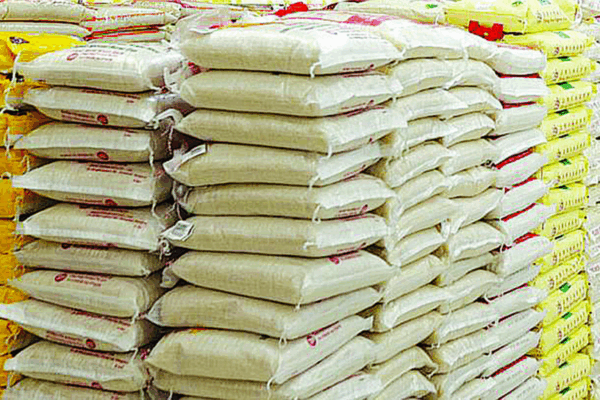
Rice Prices Soar Again, Hit ₦100,000 per Bag as Import Waiver Window Ends
Nigerians are facing renewed hardship as the price of rice surges across major markets, reversing months of relief that had seen the staple drop to around ₦65,000 per 50kg bag. A Sunday Vanguard market survey in Lagos revealed that some brands of rice now sell for as much as ₦100,000 per bag, with prices for other brands ranging between ₦77,000 and ₦90,000, depending on quality and grain type. Dealers and analysts attribute the sudden spike to the expiration of the 150-day duty-free import window granted under the Presidential Accelerated Stabilisation and Advancement Plan introduced in July 2024. The temporary policy had allowed select firms to import essential grains, including rice, without paying import duties, a measure intended to curb inflation and rising food costs. However, insiders say the process was shrouded in secrecy, with only a few large firms benefiting. Secrecy, Selective Waivers, and Policy Gaps Peter Dama, Chairman of the Board of Trustees of the Competitive African Rice Forum – Nigerian Chapter (CARF-FSD) and President of the Rice Millers Association of Nigeria (RIMAN), confirmed that only three firms, including one in Lagos and another in Kaduna, received the waivers. Dama lamented that the waiver initiative ignored established stakeholders who built Nigeria’s rice value chain. He said that many local millers and processors who applied for the waivers never received a response from the government. “Short-term fixes like waivers only hurt the local industry,” Dama warned. “We need long-term investments to support farmers, processors, and marketers if we want real food security.” Market Reactions: “We’re Not in Business Anymore” Rice dealers in Lagos expressed deep frustration. At Daleko Market, Mrs. Bolatito Yunisa described the situation as dire: “A bag of short grain rice that sold for ₦65,000 is now ₦85,000. Long grain rice is as high as ₦100,000. We are frustrated. Where is Nigerian rice?” At Mile 12 Market, Mrs. Bukola Osagie said many buyers now request rice in small measurements like “Derica” due to high prices. “We’re barely surviving. Even we, as dealers, now struggle to make sales.” The same 50kg bag of locally produced rice that once sold for ₦70,000 now goes for over ₦80,000, raising fears that Nigeria’s rice affordability crisis could worsen. ₦1.9 Trillion Spent, But to What End? According to RIMAN, ₦1.9 trillion ($1.17 billion) was spent on duty-free brown rice imports in the second half of 2024. About 2.4 million tonnes of rice were shipped into Nigeria between July and December 2024 alone. In early July 2025, 10,000 tonnes were offloaded in Lagos from a shipment by African Swift, while another 32,000 tonnes from Thailand arrived in January via DUCAT Logistics. Despite these massive imports, smuggled rice from Benin Republic still dominates many markets, with prices ranging from ₦70,000 to ₦78,000, due to a continued deficit in domestic production. “Nigeria has more than enough rice mills to feed the country,” Dama said. “But policy inconsistency, FX shortages, and selective waivers have made local milling unsustainable.” Local Mills Shutting Down Dama warned that many local rice mills have been forced to scale down or shut down due to a collapse in demand for paddy rice and an inability to compete with cheaper, subsidised imports. Other compounding challenges include: “You don’t expect millers to run at a loss. We want to feed the nation, but the system must support us,” he said. Rice Smuggling Undermines Local Production Illegal rice imports continue to flood the country. RIMAN estimates that over 1 million metric tonnes of smuggled rice have entered Nigeria between January and July 2025 alone, further destabilising the local market. “The Ministry of Agriculture submitted a vetted list of genuine millers to the Finance Ministry — but no action has followed. The silence is disturbing,” Dama added. A Collapse of Hard-Won Gains? Dama warned that unless urgent action is taken, Nigeria risks losing the gains made in the rice value chain in recent years — including job creation, rural development, and food security. “The same farmers who kept this country fed during the COVID-19 lockdowns are now being abandoned. What signal is government sending?” With prices soaring and production stagnating, the question for millions of Nigerians remains the same: When will rice — the country’s most consumed staple — become affordable again?

